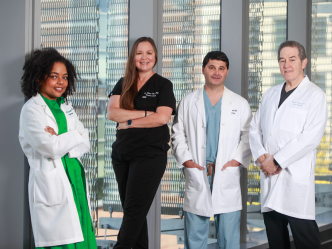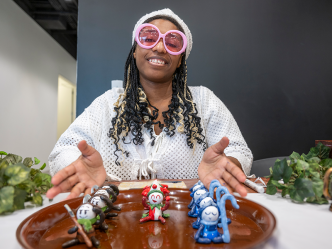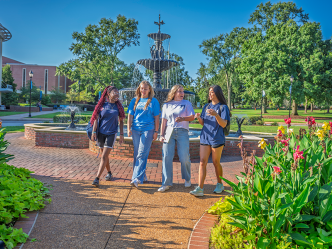A decade ago, Costa Layman Farms and the Georgia Regents University College of Nursing took a chance on something truly extraordinary.
The result – the Costa Layman Health Fair – was a bold and important step into the field of personalized, preventive healthcare: a chance for hundreds of farmworkers to receive life-altering health screenings they might not have otherwise had access to.
Comprehensive and personalized, the care provided wasn’t quite one-size-fits-all, however. The health fair’s organizers quickly discovered that an outdoor, public environment wasn’t the right place for women’s health screenings.
The annual Women’s Health Clinic was their answer.
Staffed by College of Nursing faculty, staff and students, and with the assistance and support of Clinica Latina, the GRU Cancer Center and the Ryan White Program, the annual Women’s Health Clinic provides sensitive, discreet care for female farmworkers working at the Trenton, S.C., nursery.
Dr. Pam Cromer, associate professor of biobehavioral nursing and director of Costa Layman community health projects, said the care provided goes well beyond ensuring patients have added privacy.
“Our clinical nurse leader students are required to demonstrate a level of cultural competency before seeing patients,” she said. “That understanding of cultural differences helps them tremendously during screenings at the women’s clinic, and will continue to serve them when they move on to their own practices someday.”
While important, cultural competency is only one component of the equation. In total, nursing students undergo forty-five hours of preparation for the Annual Women’s Health Clinic. Part of that preparation consists of a full day of lectures and lessons designed to familiarize students with women’s health.
The screenings provided include a comprehensive physical exam, pap smears, breast examinations, as well as HIV and STI testing.
But not everyone seeing patients at the clinic is a nursing student. In fact, some aren’t affiliated with the university at all.
“We’re always amazed,” said Cromer, referring to the outpouring of community support. “Not everyone volunteering is receiving clinical credit. We have people calling us to volunteer from the Health Sciences Campus, from the Summerville Campus, from the hospital, from the community. It’s very humbling.”
Debbie Layman, former manager at Costa Layman Farms and a College of Nursing alumna, said the women’s clinic was a unique and immensely needed opportunity for female farmworkers.
“It’s very important what the school is doing,” Layman said. “The ladies are perfectly happy coming in for an exam because the volunteers show them respect. In turn, that respect makes them want to come back. It’s a wonderful experience.”
That continuity of care, she said, helps the clinic to improve the level of care they provide to patients in the future. It also helps students to learn more about building relationships with their patients.
“It helps the students and it helps the women,” Layman said. “For nursing students especially, that’s very important.”
While the majority of the women’s clinic’s volunteers are nursing faculty and students, the overall effort is an inter-professional one.
“Without the aid of the different organizations helping, we couldn’t provide the same quality of care,” Cromer said. “The Cancer Center, the Ryan White Program – they all come together to make these screenings what they are, and that’s important. It’s a much-needed service among this population.”
Layman said she hopes to see the clinic, now in its 7th year, continue well into the future.
“This is the right event, the right tone and the right people for this particular population,” she said. “The women might not be able to get this kind of treatment anywhere else, and I can’t tell you how grateful I am to see them receive it.”
Click to watch news coverage of the 8th Annual Women’s Health Clinic from WRDW.
 Augusta University
Augusta University



